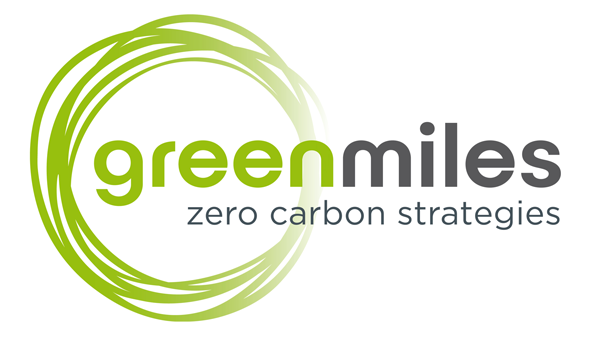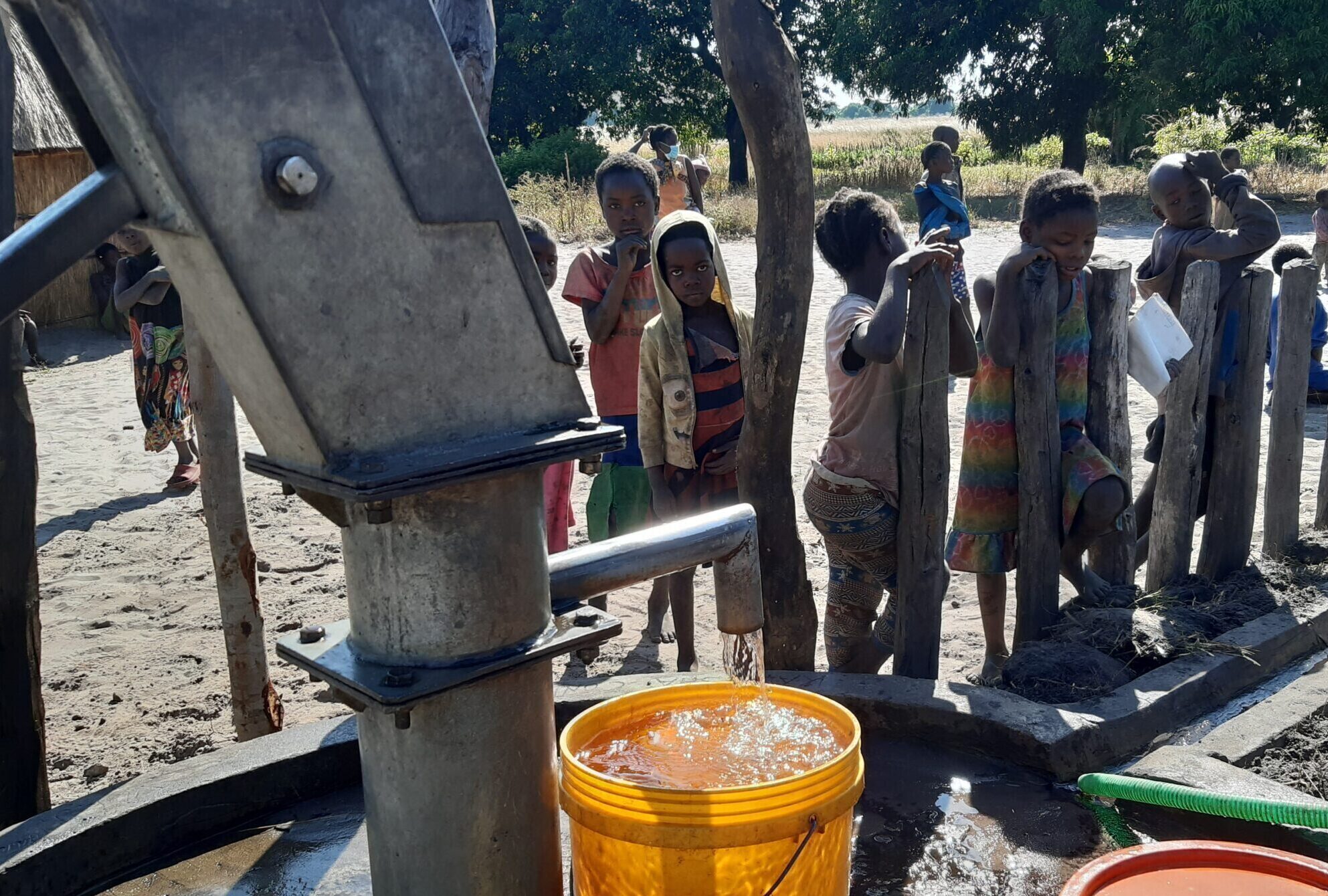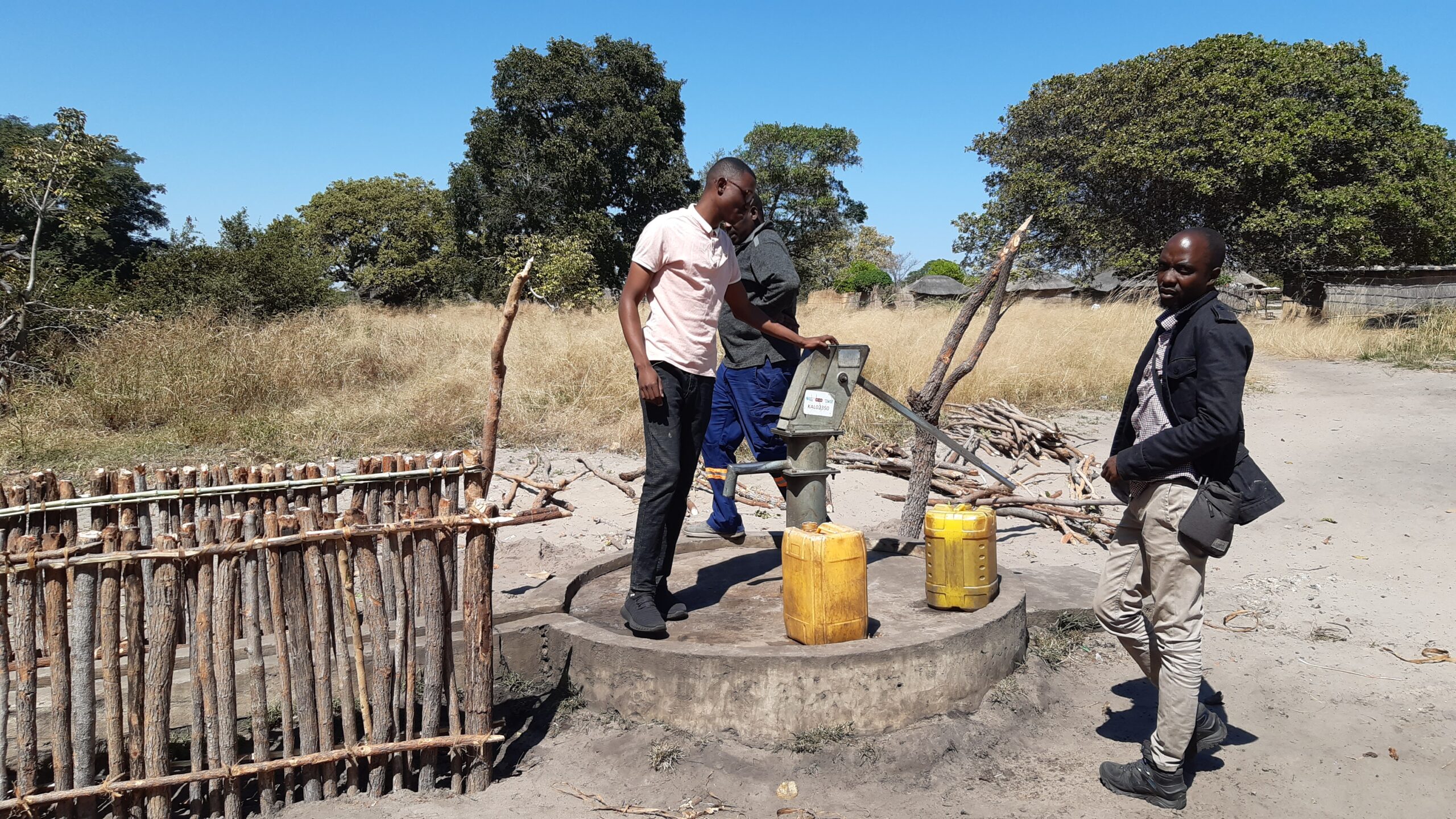Clean drinking water in Zambia
The project will support the provision of safe water using borehole technology to hundreds of households within the Central Province in Zambia. By providing safe water, the project will ensure that households consume less firewood during the process of water purification and as a result there shall be a reduction of carbon dioxide emissions from the combustion process.
These provinces are largely rural, where local people typically use wood fuel on inefficient three stone fires to purify their drinking, cleaning and washing water. This process results in the release of greenhouse gas emissions from the combustion of wood – this can be avoided if a technology that does not require fuel (wood or fossil) supplies clean water desired by households.
Repair old wells and create new water sources
Many existing boreholes were established by community groups or community-based organizations (CBOs) and have fallen into disrepair because maintenance programmes have been poorly managed, or proven too expensive. The Project developer will work with a local NGO and communities in this province to identify communities in need of a safe water source, where boreholes will be installed; and identify broken down boreholes which will be rehabilitated, so that communities have reliable access to clean, safe water. The capacity of communities to maintain their boreholes will also be supported through the project to ensure that the water keeps flowing. The boreholes included under the project will be powered entirely by emission-free technologies such as hand or solar powered pumps. The depth of the boreholes will be limited to 100m or less.
Cooperation with local communities
By working with the communities, a local NGO and government authorities, training ensures the long-term impact of the project. In this way, valuable jobs are also created and people’s awareness of their environment and climate change is promoted. Accompanying the project, people are also sensitized through an educational program on hygiene and sanitation.
Ecological effects:
-
- Reduced carbon dioxide and carbon monoxide emissions and soot particles
- Reduction of deforestation of local biomass and thus reduced soil erosion and protection of biodiversity
Positive social and economic co-benefits:
- Provision of clean drinking water
- Reduction of diseases caused by contaminated water
- Strengthening the safety of women and children through local drinking water supply
- Reduction of respiratory diseases through open fire in the huts to boil the water
- Close cooperation with local communities
- Creation of jobs in the project area
- Better use of resources of time and money





